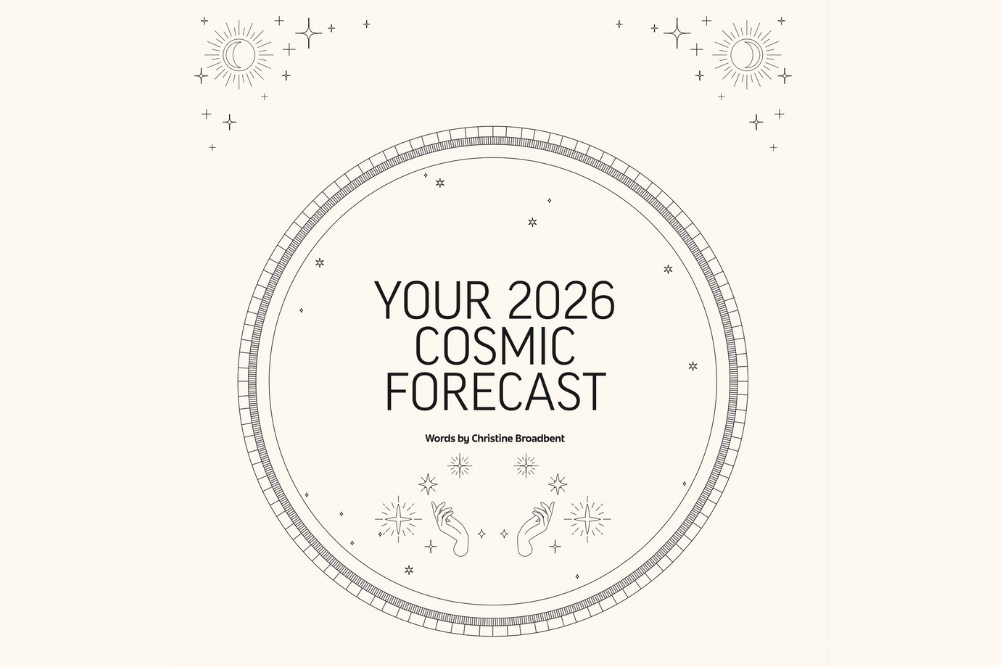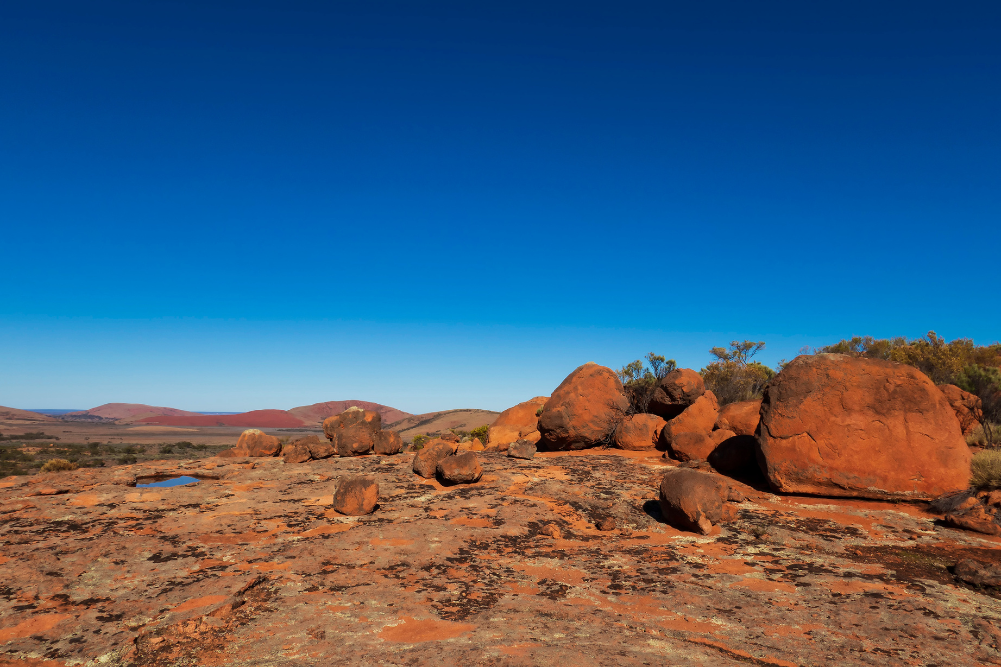Inside the spirituality database
Once reserved for the clairvoyant’s lair, the Akashic records are enjoying mainstream appeal. But what exactly is this enigmatic realm and what insights can it offer in the modern world?
Whether you lean towards the mystic world of astrology and tarot cards or consider it too woo-woo, divination has certainly gone mainstream. Given the tumultuous landscape we find ourselves in, this is hardly surprising. In stressful times, people are consulting the cosmic realm for guidance and insight into everything from career decisions to relationships. And there’s much more in the mystical vault than just your monthly horoscope. The Akashic records were, until recently, a relatively unheard-of phenomenon but, thanks to the growing movement of online spirituality, they are gaining popularity.
If you love to pore over the astrology pages of this magazine, looking for clues about what the future holds, you’re likely to enjoy the wisdom of the Akashic records. Spiritual coaches and clairvoyants say reading your Akashic records can heal past trauma and old wounds, reveal your soul’s path and uncover previously untapped gifts. But what exactly are these records?
Translated from its Sanskrit root, Akashic can mean “to be”, but also “atmosphere” and “open space”. In Vedantic Hinduism, “akasha” describes the essence of everything that exists in the material world.
Often described as a spiritual database or library, Akashic records are said to hold every soul’s path, from its many past lives to every future possibility that lies ahead. Linda Howe, author, teacher and founder of The Center of Akashic Studies, calls them “a dimension of consciousness that contains a vibrational record of every soul and its journey.” In other words, they are an energetic encyclopaedia of your past and present lives.
This infinite and complex library can be accessed in a multitude of ways, but often with the help of a spiritual navigator. Meditation, prayer, reiki, trance and sweat lodges are all used to access the records. Many Akashic readers, like Howe, have their own method they use and teach to unlock the records. Howe’s version is called the Pathway Prayer Process, which utilises a prayer with specific sounds and rhythm, spoken aloud, to get to what she calls “the very heart of the Akasha”.
The Akashic allure
Humans have consulted the mystical world for millennia in search of potent guidance. It’s nothing new but, as spirituality snowballs in the volatile modern world, more people are looking to ease their anxiety about the future via new-age beliefs. “Exponential growth in the area of conscious development has facilitated an amazing change in the past 75 years, enabling more people to engage in the records,” says Howe. What was previously reserved for uber-spiritual types is now more accessible due to today’s digital age and the availability of information online. It’s a sign of the times: in the absence of certainty, people are seeking answers and sharing their findings on social media.
The appeal of the records is multifaceted, too. Record readers see the Akasha as a powerful self-awareness tool that can help users better understand themselves, particularly at a soul level. They tout the potential of the records to shift perspectives and illuminate possibility. For people who find themselves stuck in unhelpful behavioural patterns or even toxic habits, the records are said to be particularly helpful in getting to the core of these problems and working through them.
Healing old wounds
As adults, we carry a catalogue of life experiences and, sometimes, trauma, all which shape who we are. The records go a step further, says Howe, assuming a belief in reincarnation and holding the stories of your many past lives. Learning to unlock your Akashic records can reveal generational trauma and energetic blocks, and help you identify patterns that no longer suit you. For example, an individual’s records could shed light, via a past life experience, on why they are drawn to unsuitable romantic partners or why they find communicating difficult.
“In Akashic records work, we do not change what has happened in our past,” says Howe. “What has happened has really happened. No amount of visualisation or denial can alter what has already come to pass.” But beyond simply past life voyeurism, confronting your history in this life or a previous one can be tremendously healing. Based on the knowledge found in the records, a person can gain an empathetic understanding of their behaviour and begin to make different choices to break the unhelpful cycle.
“Although everything is held within the records, everything is not available to us at one time. Rather, we can access through the Akasha whatever we need to take the next appropriate step,” says Howe. “Through guidance, insight and suggestion, engaging with our Akashic records helps us more responsibly make choices.”
The records as practised by Howe do not so much provide answers as generate more probing questions; they can’t tell you how to live your life, but they can act as an empowerment tool and, says Howe, “save us from many forms of frustration and disappointment in our lives”.
The ultimate gift guide
As well as offering a path to healing, Akashic records can also open the door to previously untapped gifts and potential by revealing the fundamental core of ourselves — what many record readers refer to as your soul’s “path” or “purpose”. This, Howe says, is the most rewarding part of her job — helping people discover what they are really here to do and guiding them to manifest that path.
“There are two major components to the records,” Howe explains. “The first is the essential blueprint for a soul’s potential. The second is the story of how that soul manifests to realise its potential.” Getting to know this blueprint can be very validating, or indeed healing, for those who are living out of alignment with their true nature. For example, an inherently creative person in a numbers-focused corporate job is unlikely to feel fulfilled. Being confronted with this contradiction gives them the option to make more aligned choices in order to fulfil their soul’s purpose.
Someone else might discover they are a talented landscape gardener but have never been encouraged to give it a go. As Howe says, “The records encourage us to have the confidence to stand in the truth and expression of our Divine potential.” In this light, the records are a prompt for introspection, a way to access information or “answers” we already hold.
Howe recalls one client who was unhappy in her medical career and had a secret dream to sell real estate. “It was a significant career, complete with honours, recognition and awards,” says Howe. “Everyone was delighted with her progress in her chosen profession. Except her. She was miserable. As the conversation progressed, she revealed an unsaid desire to sell real estate, a long-held dream of hers. Medicine was her mother’s dream for her and once that came to light, she began to move away from being a doctor and toward real estate sales. This was not the goal of the session. Her original intention was to find a way to keep her position as a doctor. Life had other plans for her, and everyone is much happier.”
not psychics and the records do not predict the future. “[They] are not a parlour game, so when a sceptical person comes to me with a test question like ‘what number am I thinking about?’ or ‘what was the name of my first dog?’, I know they are not receptive to the subtle energy and tremendous wisdom available through the records,” she says. “Honestly, it’s unlikely that any substantial information would come through for them in the reading anyway!”
The goal is not to find out where you’ll be in five years, but to break free of futile struggles (like the doctor who was unhappy with her job) and into a more loving, accepting place of self. The records are about making room for magic alongside the science. Looked at from this perspective, reading your records is not so different from a therapy session or any other form of mindfulness-centred intervention. Indeed, one benefit of the modern world’s embrace of new-age beliefs, and wellness in general, is the acceptance of “alternative” pathways to happiness.








